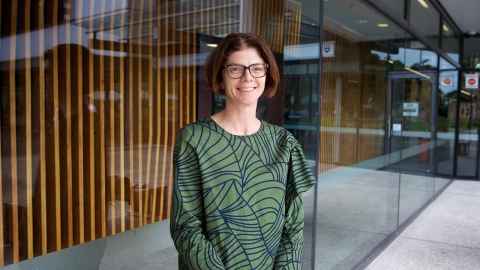A new lead on a neglected disease
17 March 2020
Opinion: Rheumatic fever remains one of the starkest examples of health inequity in New Zealand. Nikki Moreland and Reuben McGregor outline their new lead in the hunt for immune therapies, and the wider collective action needed.

Almost all new cases of the disease are in Māori and Pacific children and we still have one of the highest rates of rheumatic fever in the OECD.
Rheumatic fever starts with an infection by the Strep A bacteria (strep throat) that can develop into rheumatic heart disease and permanent heart valve damage. One of the reasons rheumatic fever continues to persist is that we still don’t have a clear understanding of how a Strep A infection develops into rheumatic fever in some children, and not in others.
To change that understanding requires well connected, collaborative efforts involving communities, healthcare workers and researchers. As scientists who study the immune system, we contribute to these collaborative efforts in New Zealand by investigating how antibodies are altered in children with rheumatic fever. (Antibodies are proteins produced by the body to fight bacterial infections. They are a key component of the immune system.)
As scientists here in New Zealand we will continue following leads to identify pathways for new therapies, and support globally connected, collaborative research efforts to reduce the impact of this devastating neglected disease.
To us as scientists, this finding is like a new lead for a detective. We can now follow this lead to investigate how the immune response is causing the disease. Rheumatic fever has an autoimmune basis. After fighting the Strep A infection, the immune system stops working as it should, starts attacking parts of the body that become inflamed (like the joints and heart) and contributes to rheumatic fever symptoms.
Our new data suggests that IgG3 is one part of the immune system that is no longer properly controlled and is instead causing disease symptoms. If we can understand how IgG3 and other components of the immune system are contributing to disease, it should be possible to tailor therapies to control the immune system in children with rheumatic fever.
There has been a revolution of “immune-therapy” in medicine, but none have been investigated for children with this complex disease. This stems from a lack of research investment into this area compared to other infectious diseases. In fact a team from the UK referred to the underfunding of rheumatic heart disease research globally as “neglecting the neglected” in a paper published last year by the Royal Society of Tropical Medicine and Hygiene.

New Zealand has a commitment to reducing the impact of this complex disease. In 2018 our country was part of a group that led a World Health Assembly resolution to reduce rheumatic heart disease globally. This commitment will require a multi-pronged, international, evidence-based approach to yield results.
Collectively, we need improved understanding on all aspects of the disease pathway. From the first exposure to Strep A bacteria, to the best ways to manage and treat Strep A skin and throat infections, through to mapping the immune response in rheumatic fever to identify better ways to diagnose and treat this stage of the disease.
As scientists here in New Zealand we will continue following leads to identify pathways for new therapies, and support globally connected, collaborative research efforts to reduce the impact of this devastating neglected disease. The complexity of rheumatic fever and rheumatic heart disease means the best solutions will come from the combined minds of many.
Dr Nikki Moreland and Dr Reuben McGregor are immunologists at the Faculty of Medical and Health Sciences.
This article reflects the opinion of the author and not necessarily the views of the University of Auckland.
Used with permission from Newsroom A new lead on neglected disease 17 March 2020.
Media queries
Alison Sims | Research Communications Editor
DDI 09 923 4953
Mob 021 249 0089
Email alison.sims@auckland.ac.nz